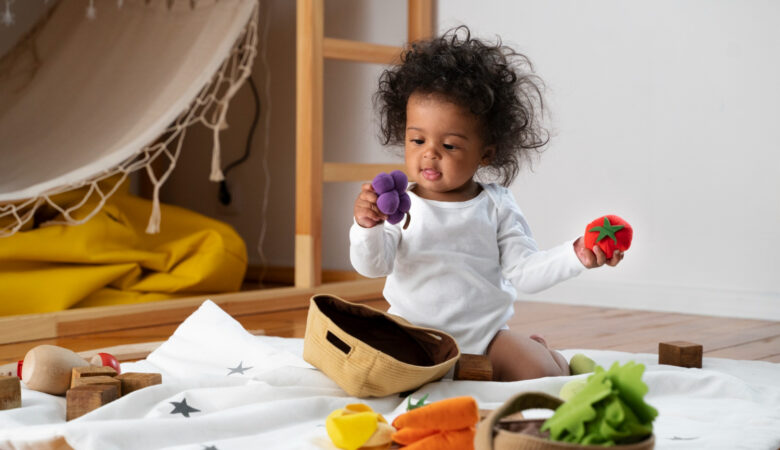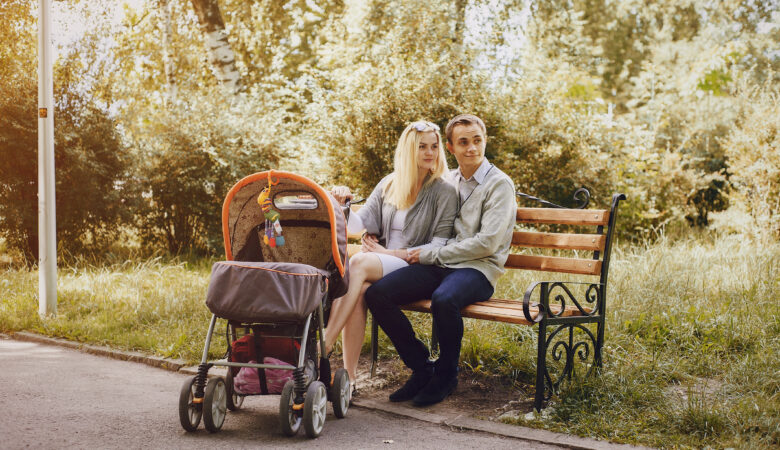I always thought I knew what postpartum depression looked like. The commercials, the pamphlets in my OB’s office, the well-meaning warnings from friends – they all painted a picture of a new mother unable to get out of bed, disconnected from her baby, crying constantly. So when my son was born and I felt an immediate, fierce connection with him, I thought I’d dodged that particular bullet.
What no one prepared me for was the anxiety.
It started subtly, around week three. The intrusive thoughts crept in first – vivid images of accidents happening to my beautiful baby boy. I’d be carrying him down the stairs and suddenly my mind would flash to what would happen if I tripped. I’d be driving and imagine a car swerving into us. These thoughts would play like horror movies in my head, leaving me breathless and shaking.
“It’s normal to worry,” everyone said. “All new moms worry.”
But this wasn’t worry. This was terror on a continuous loop.
When Google Becomes Your Worst Enemy
By month two, I had developed a nightly ritual. After finally getting my son to sleep, I’d spend hours researching every tiny thing that seemed “off” about him. Was his breathing pattern normal? Was that rash common? Did his cry sound different? Should his fontanelle look exactly like that?
My search history became a catalog of worst-case scenarios. My phone became both my comfort and my tormentor. Just one more search, I’d tell myself. Just to be sure.
“You’re just being thorough,” my mother reassured me. “It shows what a good mom you are.”
But good moms surely got some sleep, right? Good moms probably didn’t wake their babies to check they were still breathing six times a night.
The Invisible Straightjacket
The physical symptoms blindsided me. No one had mentioned that anxiety could make your body feel like it was constantly under attack. My chest tightened regularly. My hands tingled. Sometimes I’d be feeding my son and suddenly feel like I couldn’t catch my breath, my heart racing so fast I was convinced something was seriously wrong with me.
I started avoiding going out because what if a panic attack hit while I was alone with the baby? What if I couldn’t breathe properly and something happened to him while I was incapacitated? The walls of our apartment became both my prison and my sanctuary.
“You just need to get out more,” well-meaning friends suggested. “Some fresh air will do you both good.”
If only they could see the invisible straight jacket I was wearing.
The Breaking Point
My breaking point came at my son’s four-month check-up. His pediatrician asked routine questions about his development, and I pulled out a notebook where I’d documented every feeding, every diaper, every sleep cycle, every potential “abnormality” I’d noticed.
As I flipped through pages of meticulous observations, I saw her expression shift from professional interest to concern. But her concern wasn’t for my son.
“How are YOU doing?” she asked, in a way that made me actually hear the question for the first time.
And I broke. The tears I’d been holding back for months came in a flood. I couldn’t stop them. I couldn’t form words. I just sat there, clutching my perfectly healthy baby, finally acknowledging that I was drowning.
Finding My Way Back
That pediatrician handed me tissues, took my son onto her lap, and gave me the name of a therapist who specialized in perinatal mood disorders. She told me that postpartum anxiety is just as real as postpartum depression, just less discussed. She told me I wasn’t failing as a mother – my brain chemistry was just working overtime to protect my child in misguided ways.
Most importantly, she told me I could get better.
The path back wasn’t linear. Therapy helped me identify my triggers and develop coping strategies. I learned grounding techniques for when intrusive thoughts took hold. My partner took over nighttime duties twice a week so I could take medication that helped quiet the constant alarm bells in my brain.
Small victories accumulated. I went to a mom’s group and made it through without checking my phone for infant health information. I let my mother-in-law watch the baby while I napped, actually sleeping instead of lying awake imagining disasters. I deleted the baby monitoring app that I’d been using to document every minute of my son’s existence.
What I Wish I’d Known
Looking back at those dark months from the other side, here’s what I wish someone had told me:
Postpartum anxiety is common, but not normal. Up to 10% of new mothers experience it, yet it’s often overlooked in the shadow of postpartum depression.
Your intrusive thoughts don’t define you. Having a fleeting, terrifying thought about harm coming to your baby doesn’t mean you’re a bad mother – often quite the opposite. It’s your brain’s misguided way of trying to protect them.
Physical symptoms are real. The racing heart, the shortness of breath, the insomnia – these aren’t character flaws or weakness. They’re your body’s response to the constant state of alert your mind is maintaining.
Asking for help isn’t giving up. It took me too long to realize that needing support didn’t mean I was failing at motherhood. It meant I was brave enough to recognize when something wasn’t right.
Recovery isn’t just possible – it’s probable. With proper support and treatment, postpartum anxiety doesn’t have to define your entire experience of motherhood.
Where I Am Now
My son just turned two. He’s a tornado of energy, curiosity, and joy. And while I still have moments of anxiety (don’t we all?), they no longer control my life or my mothering.
I can let him run ahead a little at the park without imagining every possible danger. I can enjoy a movie while a babysitter watches him without checking my phone every five minutes. I’ve reclaimed the parts of myself that got buried under layers of fear.
If you’re reading this in the dark, phone glowing as you Google yet another worry while your baby sleeps, please know you’re not alone. What you’re experiencing has a name, and having it doesn’t make you any less of the loving, dedicated mother you so clearly are.
Reach out – to your doctor, your partner, a trusted friend. Say the scary words out loud: “I think I might have postpartum anxiety.” Watch how the simple act of naming it starts to loosen its grip on you.
The journey back to yourself might be longer than you’d like, but I promise, it’s a journey worth taking. Your baby deserves the real you – not because you aren’t enough right now, but because the real you has so much more joy to give and receive.
And joy, I’ve discovered, is the opposite of anxiety. It’s what waits on the other side.









Leave a Reply